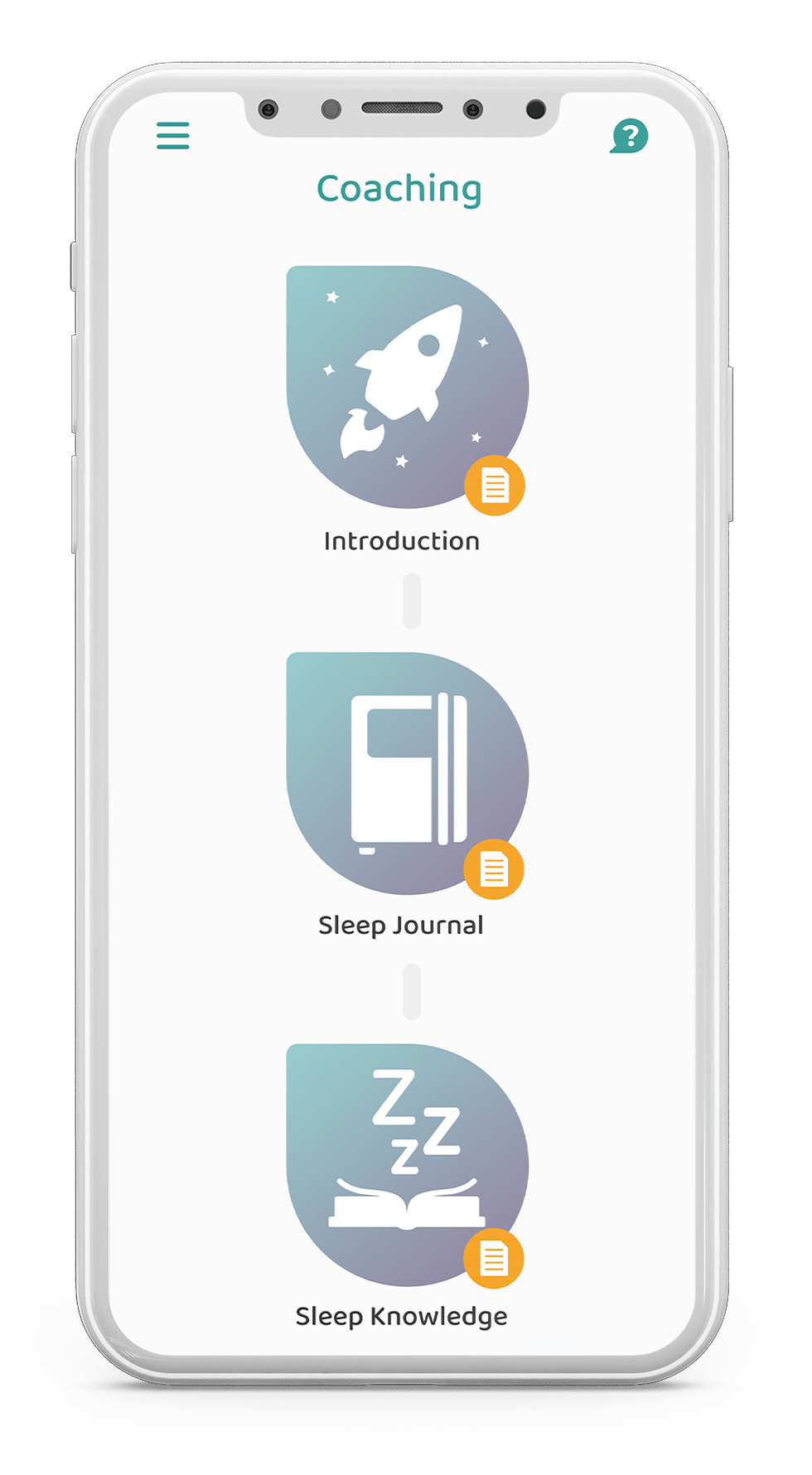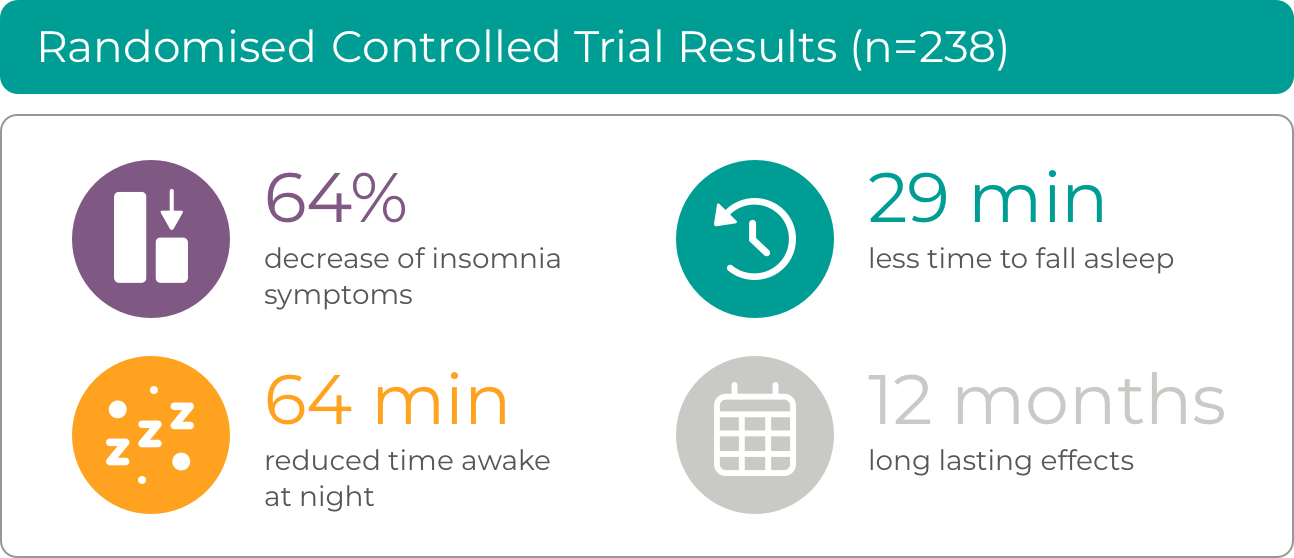Take control of your sleep, with somnio
somnio is an online insomnia therapy program to help you sleep well for the long term. You will complete digital Cognitive Behavioural Therapy for Insomnia (CBT-I) in under 10 weeks.
Get somnio now
An intelligent digital program tailored to you
somnio is personalised to your sleep needs. An intelligent algorithm analyses your sleep data to create a unique experience over 12 interactive modules. You will learn CBT-I techniques based on leading sleep medicine research and guidelines.
Understand your sleep problems and put them into context
Learn how you can handle racing and ruminating thoughts
Can help to increase your focus and performance during the day
Optimise sleep times and apply bedtime restriction
Learn relaxation techniques to help you fall asleep faster

Who is somnio suitable for?
somnio is aimed at people who suffer from
insomnia. Insomnia is characterized by the following
criteria:
1. A self-reported complaint of poor sleep quality
including one of the following:
- difficulties initiating sleep
- difficulties maintaining sleep
- waking up earlier than desired
2. Sleep difficulties occur despite adequate sleep
opportunity.
3. Impaired sleep produces deficits in daytime
function.
4. Sleep difficulty occurs three nights per week and is
present for three months.
(Grima, N. A., Bei, B., & Mansfield, D. (2019).
Insomnia theory and assessment. Australian journal
of general practice, 48(4), 193-197.)
insomnia. Insomnia is characterized by the following
criteria:
1. A self-reported complaint of poor sleep quality
including one of the following:
- difficulties initiating sleep
- difficulties maintaining sleep
- waking up earlier than desired
2. Sleep difficulties occur despite adequate sleep
opportunity.
3. Impaired sleep produces deficits in daytime
function.
4. Sleep difficulty occurs three nights per week and is
present for three months.
(Grima, N. A., Bei, B., & Mansfield, D. (2019).
Insomnia theory and assessment. Australian journal
of general practice, 48(4), 193-197.)

Schuffelen et al., 2023: The clinical effects of digital cognitive behavioral therapy for insomnia in a heterogenous study sample: results from a RCT.
somnio clinical results
The clinical benefits of somnio, such as decreased insomnia symptomns and improved sleep parameters, have been studied in a randomized control trial.
The study showed that on average, the users of digital sleep training were able to reduce their insomnia symptoms by 64% and to significantly shorten their time awake at night.
The effects were also stable in a 12-month follow-up-survey.
See studyThe study showed that on average, the users of digital sleep training were able to reduce their insomnia symptoms by 64% and to significantly shorten their time awake at night.
The effects were also stable in a 12-month follow-up-survey.

